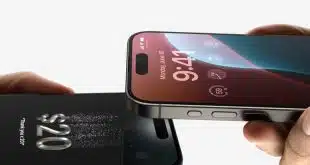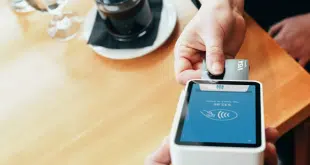BSG Clearing Solutions has started talking to sellers of digital merchandise about using a new service that would allow them to take payment for games, songs, and other such goods by charging the items to consumers' wireless bills. The targeted sellers for the new service are so-called off-deck merchants, or vendors that download their merchandise to users' handsets and aren't part of the wireless operators' own portals. To sell the service, BSG is approaching the 400 merchants that use its payment-settlement services today. Acting as a clearing house, BSG processes some 20 billion transactions a year for telecommunications companies and merchants. At a recent customer meeting, the product stirred considerable interest, company officials say. “The early indications are very positive,” says Randall Brouckman, chief executive of the San Antonio, Texas-based company. This week, BSG announced its Bill2Phone-Mobile service, an extension of a product it rolled out earlier this year that allows consumers to charge online purchases to land-line phone accounts (Digital Transactions News, March 20). As part of that rollout, the company launched a platform it calls its Advanced Payment Gateway, which also includes card-payment processing and risk-management functions. Some of the 400 client sellers are using the new gateway, Brouckman says. “We've been actively selling it, and are ahead of schedule,” he notes, adding BSG had signed more than 20 merchants by the middle of the year. The new mobile-payments option relies on premium short-message-service transmissions to allow cell-phone users to send text messages indicating products they want to buy. The gateway captures these messages, authenticates the consumer, and adds the item to the user's wireless account. Brouckman says BSG can bill to accounts held by a dozen carriers, including AT&T Mobility, Sprint, T-Mobile, and Verizon Wireless. The service authenticates buyers by sending text messages back to the phones asking users if the had launched the transaction. In this way, BSG hopes to solve a nagging problem with mobile-payments programs that depend on premium SMS: fraud resulting from the absence of an authentication routine. With some premium goods, such as digital games, running to $10 or more, fraud “starts to matter more,” Brouckman says. As with other such transactions, the carrier fee to merchants is heavy, ranging from 25% to 50% of the transaction, Brouchman says. BSG's portion of that, he says, is “pennies.” This contrasts with fees on the land-line side, where merchants pay percentages more comparable with credit card discount rates, he says. Even so, Brouckman expects carrier charges to drop. “As more and more content merchants enter the game, and as carriers get more competitive, that [merchant fee] will come down,” he says. For now, BSG is consciously limiting the mobile service to digital products, which don't carry the returns issues physical goods do. “Sticking to digital goods is a little bit easier,” Brouckman says. Also, the company doesn't want to run afoul of carrier restrictions on the sums allowed on users' bills. “The carriers don't want sticker shock [for users],” says Brouckman. “We don't want to put a refrigerator on the phone bill.” These limits vary by carrier, but generally run to around $50, he says. BSG is a subsidiary of Billing Service Group Ltd., a UK company.
Check Also
More States Press Interchange Regulation as Illinois Legislators Contemplate Delaying the IFPA
More states are introducing legislation exempting merchants from paying interchange on sales tax and tips. …





